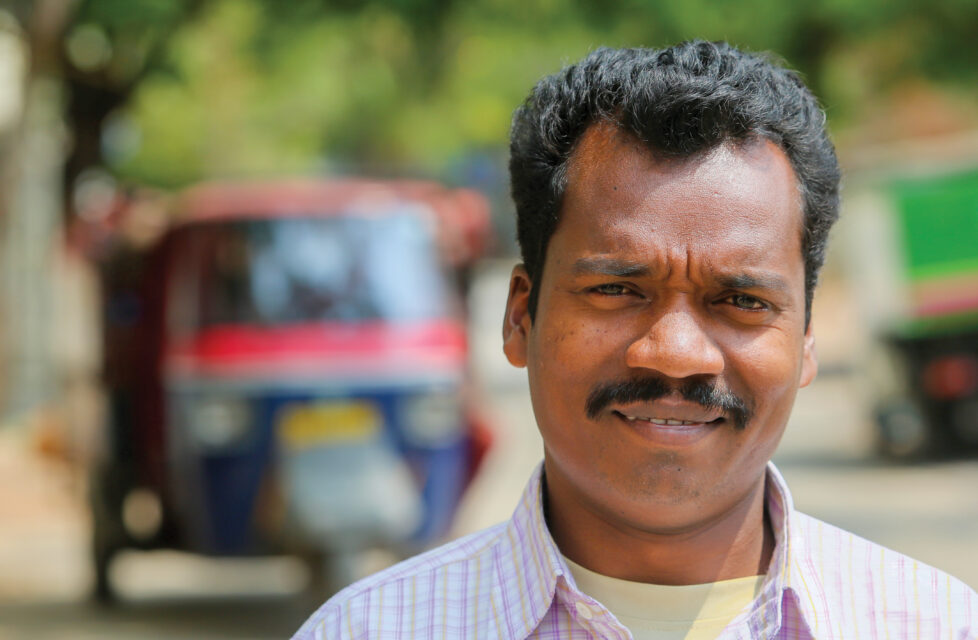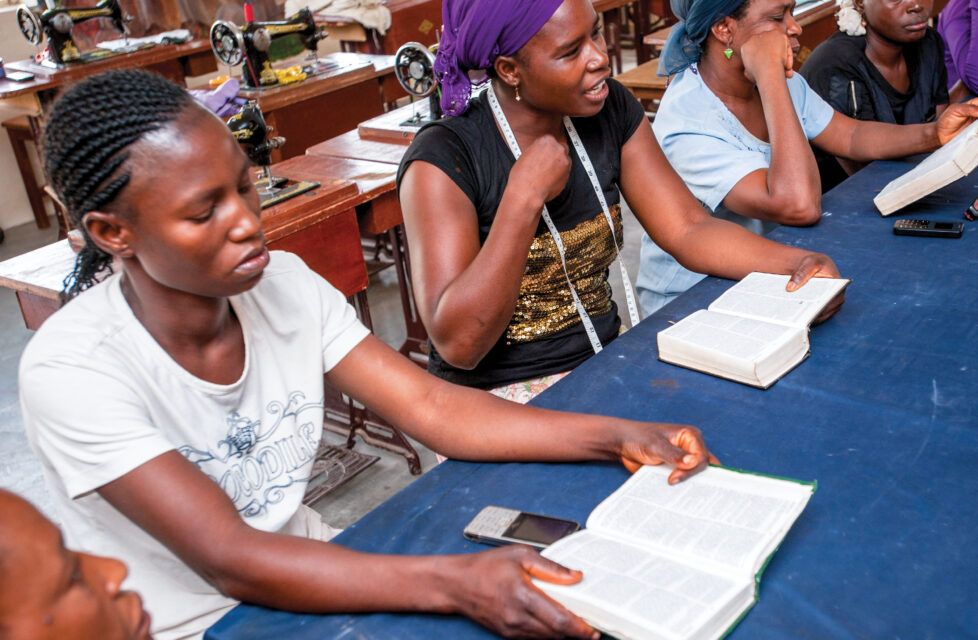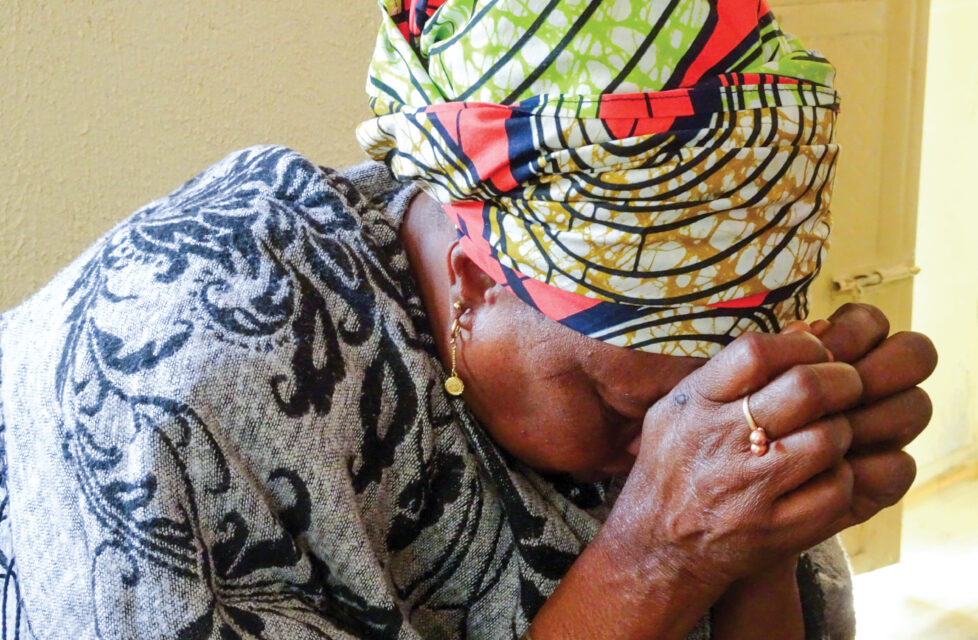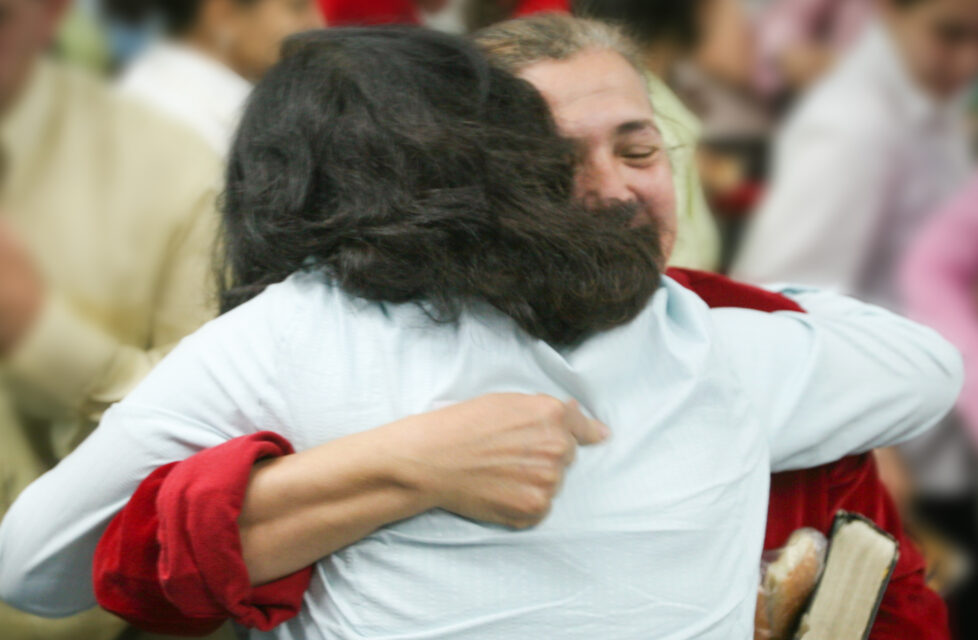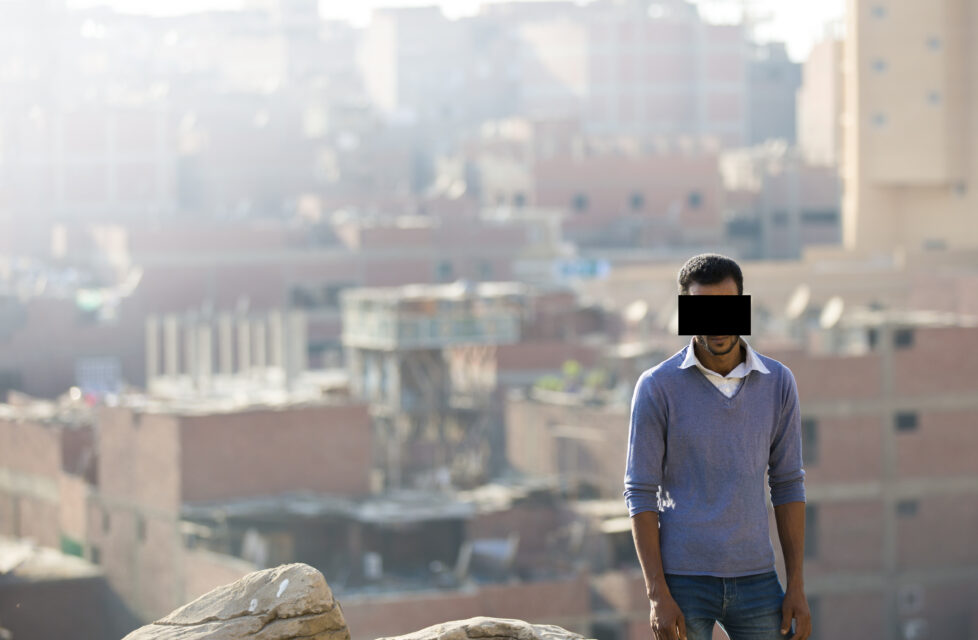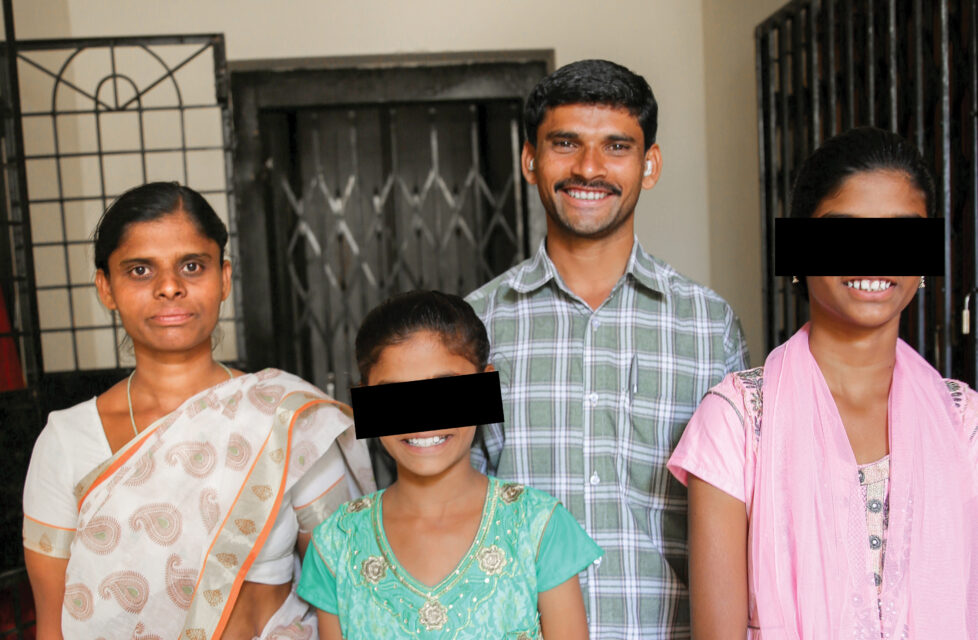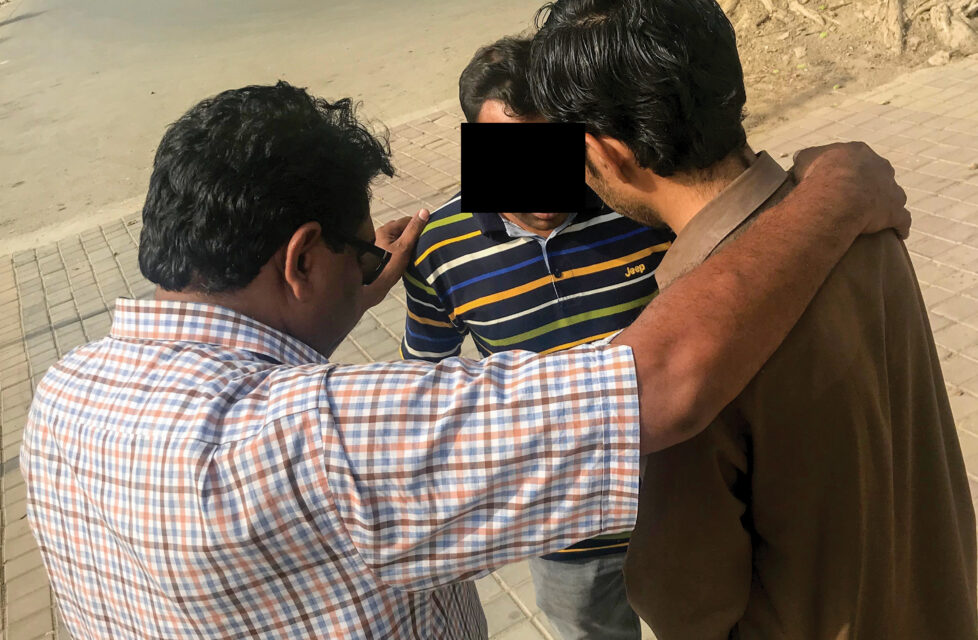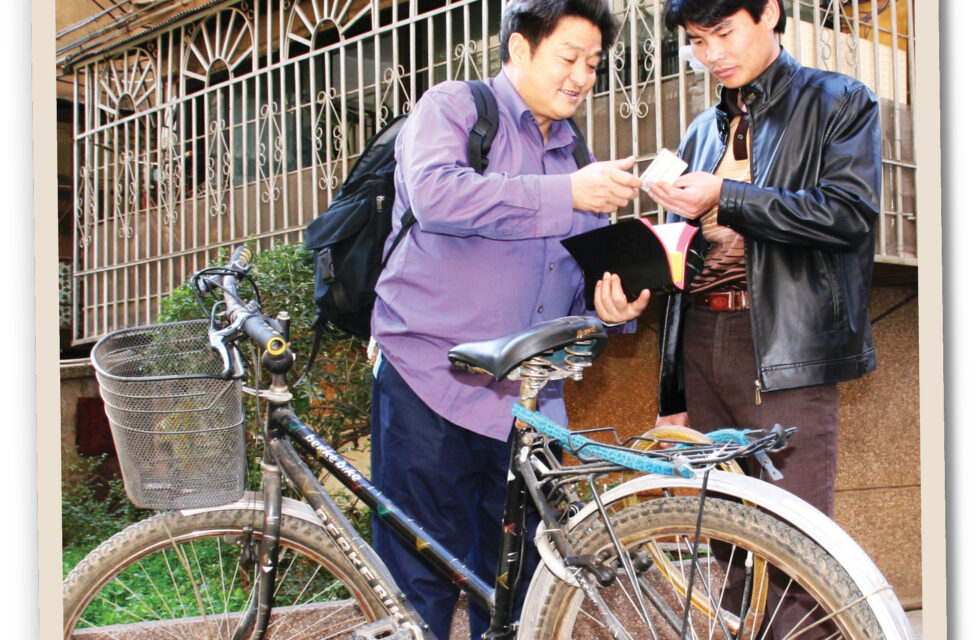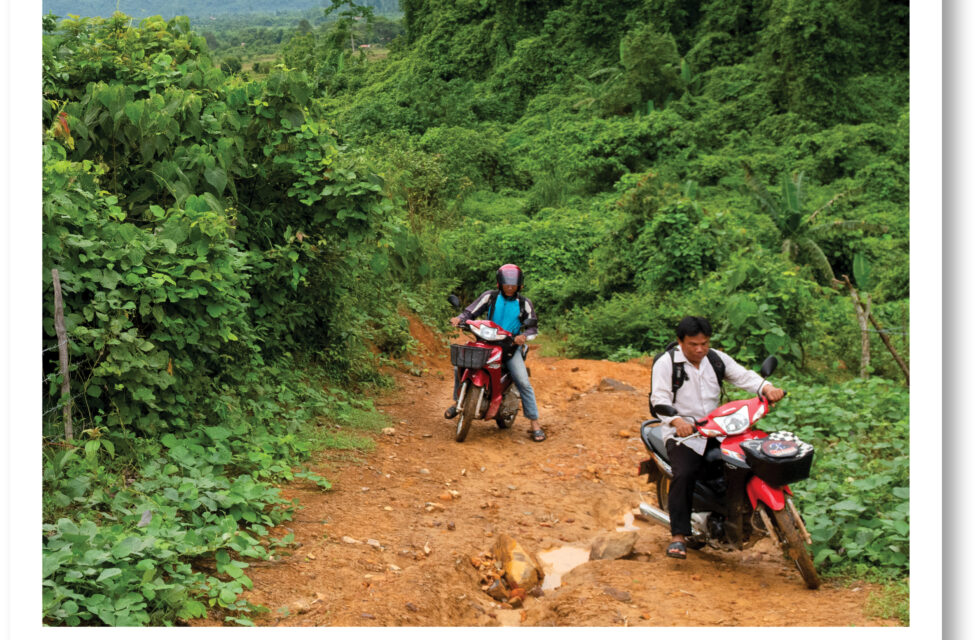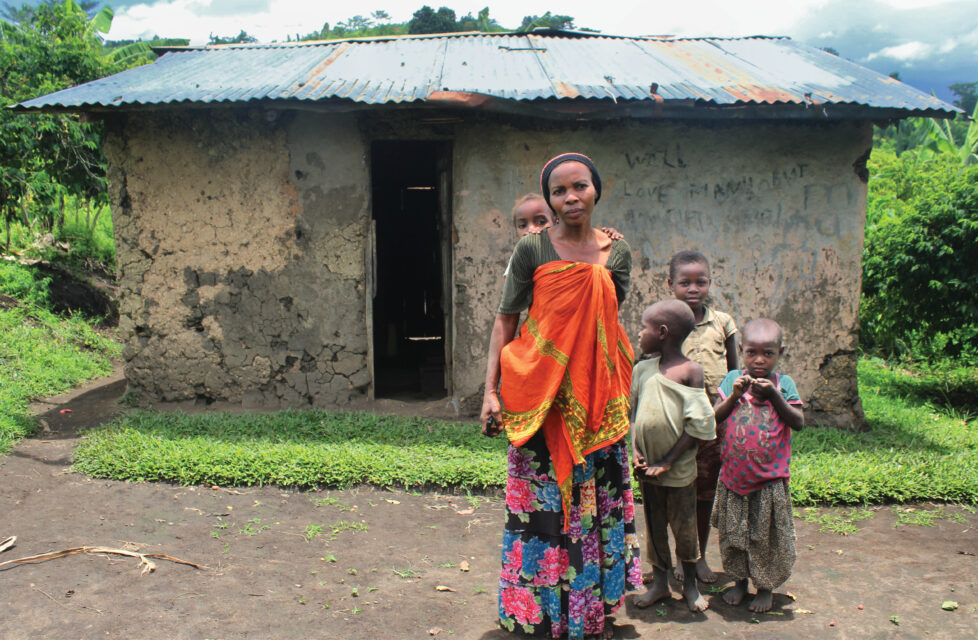After a pastor was killed for sharing the gospel with his Hindu neighbors, his brother stepped in to carry on the ministry. Pastor Harman was filled with dread as he answered a late-night knock at his door on Aug. 15, 2015. When he opened the door, he was confronted by three armed Naxalites, guerrillas associated with the Communist Party of India. And standing farther back, surrounding his house, were another 20 armed militants. During their four previous visits, the guerrillas had calmly warned the pastor to stop sharing the gospel with Hindus in the village. But this visit was different. Surrounded by men armed with AK-47s, the pastor was escorted away from his simple home and into the night. Fearing for her husband’s life, Harman’s wife, Ashna, followed them, leaving their two young children with Harman’s mother. The guerrillas took Harman to the village leader’s home and, after a brief meeting, walked him toward a nearby forest. One of Harman’s younger brothers, Vihaan, who had learned of the abduction from their mother, arrived just before the group entered the woods. He pleaded with the group to release his brother, but the guerrilla leader simply pushed him away and kept walking.
Read MoreA Daughter Betrayed Ruth was leafing through the Bible in her room when her younger sister walked in. “Mom! Ruth has one of those books that belongs to the Christians!” her sister yelled as she ran from the room. Panicked, Ruth shoved the Bible under her mattress. Ruth’s mother and sister ransacked the room looking for the forbidden book, but they somehow overlooked it even though they flipped the mattress. “If I find a Bible, only Allah could save you,” her mother warned. Ruth lived in a Muslim village located in Adamawa state, northern Nigeria. She and her brothers and sisters lived with their mother, while their father supported the family by working in another state. Like 60 percent of Muslim girls in the north, Ruth never learned to read. At age 19, she still spent her days helping her mother with housework. Ruth didn’t think much of Christians; they were infidels, and the ones she knew behaved immorally. However, one Christian boy — a pastor’s son — always nodded politely and smiled when she walked past. Still, she wanted nothing to do with him. Then, one day the boy stopped Ruth and told her he had dreamed that she
Read MoreA Sisterhood of Grief and Comfort Deborah and Christina have lost children, husbands and homes in Boko Haram attacks, but even great suffering has not shaken their trust in God’s providence. As Deborah chatted with a neighbor under a mango tree one day, five young men drove up, jumped out of their truck with machine guns and walked purposefully toward her home. Her nieces, 9-year-old Palmata and 7-year-old Kumai, whom she had adopted, ate their after-school snacks just outside the front door while Deborah’s husband sat inside the house preparing for a Bible study that evening. Deborah quickly followed them into her house, but one of the men stopped her in the hallway. “You have to lie down!” he barked at her. As she lay on her stomach, the armed man pressed his boot into her lower back. Then she heard four shots in the room where her husband was studying. Overcome with terror, Deborah started praying. She believed that she would be next. To her surprise, the killers left her cowering in the hallway. Once outside, however, they grabbed her young daughters and forced them, screaming, into their truck. “Why are you taking us?” Palmata cried. Deborah scrambled to
Read MoreDuhra was born into unhappiness. When her older sister was born, her father named her “Enough” because he did not want more daughters. Then, when Duhra was born, he abandoned the family altogether. Duhra’s mother, who blamed her for the breakup of her marriage, left Duhra in Cairo with her grandmother while she worked abroad. Although Duhra’s mother was a non-practicing Muslim, her grandmother was devout, forcing her to cover her head and to pray regularly. Feeling the loss of her parents deeply, Duhra prayed to Allah for help: “I need a mother; I need a father. Why did you create me with no parents?” Then one night, Duhra dreamed of a large white building like a mosque, but it had a cross on top instead of a minaret. Although she had never seen the building before, she recognized the cross from the tattoos she had seen on her Coptic Christian classmates. Coptic Christians, who practice a form of Orthodox Christianity, compose only about 10 percent of Egypt’s population. But they are proud of their Christian heritage, and many boldly display cross tattoos on their wrists or hands. The dream had brought Duhra such comfort that she began drawing a
Read MoreWalid hated his Christian co-worker so much that he planned to kill him. But a bold act of love set him on a new course – directly to Christ. After listening to his co-worker, Haytham, sing Christian worship songs for several days as they painted a house in Cairo, Walid had finally had enough. His ultraconservative Muslim father, who had five wives and 32 children, had taught him early in life that he should hate all Christians. That deep-seated hatred had already led him to beat Haytham with a wooden stick for singing along with the Christian songs playing in his earbuds. And since that hadn’t stopped the singing, Walid decided to silence him permanently. One night after work, Walid grabbed a knife and followed Haytham into the streets. After making sure they were alone, he attacked Haytham from behind, stabbing him in the side. Haytham turned to look at his attacker as he fell to the ground writhing in pain, and Walid made eye contact with him before fleeing the scene. Expecting a visit from the police, Walid hid anxiously at his aunt’s house. “I tried calling some of my friends to see if [Haytham] was alive or dead,”
Read MoreAt 9 p.m. on Feb. 7, 2016, Pastor Kabir finished leading a prayer service at Savior’s Church in the heart of one of India’s slums. He then left his congregation of 40 believers and boarded a bus to travel home to his wife, Ishita, and their two daughters, just as he did every other Sunday evening. This time, however, four men followed the 37-year-old pastor home. The men, all members of a youth militia called Hindu Yuva Vahini, stopped the bus three miles from Kabir’s home, dragged him off the bus and kidnapped him. They took him to an old, empty building, where they planned to force him to deny Jesus on video. Like other Hindu nationalist groups, such as the prominent Rashtriya Swayamsevak Sangh (RSS), Hindu Yuva Vahini seeks to forcibly reconvert those who leave Hinduism. The men surrounded the pastor, brutally kicking and punching him for 15 minutes. One of them repeatedly hit him on the head with the handle of a knife, and with each blow Kabir pleaded with God to spare his life. He pledged to serve Him more zealously if he survived. As the pastor lay on the floor bleeding and writhing in pain, one
Read MoreGrowing up in Pakistan, Abdul lived under strict Islamic law within an oppressive shame culture. His uncle, the head of his extended family, was an Islamic leader in the community, and the Quran was the source of ultimate authority over his life. As Abdul grew older, however, he began to worry about where he would spend eternity. He often thought of heaven and discussed the afterlife with his uncle, but his uncle simply assured him that he would get there. “You know you are doing a good job,” he told Abdul. “You will go to heaven.” Instead of providing comfort, his uncle’s words offended him. He knew he had not lived a good life, even by his own standards. And surely heaven’s standards were higher than his own, he thought. The Islamic view of heaven suddenly felt cheap to Abdul. After further conversations about Islam with family members, Abdul’s disgust with his life grew so intense that he wanted to commit suicide. Distraught, he shared his feelings and dark intentions with a friend. To Abdul’s surprise, his Muslim friend challenged him to take a Bible correspondence course that he had been taking. Abdul signed up for the course and soon
Read MoreIn July 1998, Pastor “Bike” cycled 17,000 kilometers (over 10,000 miles) across China, sharing the gospel in 24 provinces. Police often threatened his Beijing house church, and Pastor Bike was detained repeatedly. Now based in Qingdao, Shandong province, Pastor Bike still ministers actively throughout China, continuing to lead an average of two to three people to Christ every day. He and his wife are planting a church for migrants, and they baptized hundreds of new believers in 2018. Pastor Bike faces ongoing pressure and persecution, as well as some health challenges.
Read MoreEvery weekend, Linh and her husband travel five hours by motorcycle to take the gospel to a village Linh once feared. The village, known as a “Communist hero village,” was home to a number of soldiers who died fighting against the United States in the Vietnam War. The villagers take great pride in the fallen heroes from their community and deeply treasure their communist way of life. Many of the villagers lived there during the war and remember those who died. In a country where most of the population practices ancestor worship, the veneration of those who fought and died for communism is considered a sacred duty. The fallen heroes are viewed by some to be guardian spirits of the village, and their memory is invoked to promote nationalism and communist pride. Initially, Linh’s husband didn’t want her to work in the village; he was afraid she would be arrested. Over time, however, he felt compelled to support her, and he continues to pray for her success. Although he travels to the village with her each time, he stays with the motorbike as Linh shares the gospel. Not just anyone can enter the Communist hero village Linh visits. She gained
Read MoreCecelia’s Costly Choice Cecilia was still grieving her husband’s death when Habib Kabunda started visiting her small village in Uganda. Although he was a Muslim and she was a Christian, Habib had been a friend of Cecilia’s husband. So when he proposed marriage, Cecilia’s tribe voted that she should marry him, and Cecilia accepted. Her children needed a father, and she had no means of supporting her family. After their marriage, which required Cecilia to convert to Islam, Habib moved into Cecilia’s mud-walled house, where they had children together and eventually became a family of nine. Habib worked, Cecilia managed the household and life seemed to return to normal. As the years passed, however, Cecilia became increasingly uneasy with her adopted Islamic faith. She felt empty and depressed, and the words of the clerics at the mosque meant nothing to her. Recognizing that the problem was spiritual, she knew she had a decision to make. “I realized I had to stop right there and return to Christ,” she said. Cecilia left the mosque and returned to church, even though she and Habib often fought about it. Her Christian faith became more central to her life, and she knew she would
Read More
